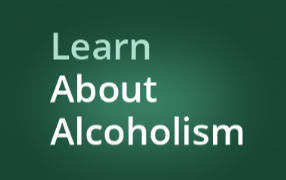Consequences of Drunk Driving
Drunk driving is a choice that can have serious consequences in your life. Although you may not always know the full extent of the damage being done, it is still important to understand what drinking and driving can do to your health both in the short term and long term.
The consequences of drunk driving include:
- physical injuries,
- emotional damage,
- legal problems.
It is a widely known fact that driving a vehicle after drinking is a dangerous choice. Alcohol has been proven to impair our coordination, our ability to make sound judgments and our vision. When combined, this can be a lethal combination behind the wheel of a vehicle.
There are some people who think it’s okay to drink and drive if they’re only going a short distance or they have a designated driver. The fact is, there is no safe time to drink and drive because even if you only had one beer, you can still be considered impaired by alcohol. When you ignore these facts and take a chance with your life; the consequences of drunk driving could claim lives or save them.
When we think about drunk driving, we often think about a person who is drunk. However, a person can be charged with drinking and driving charges when their blood alcohol content is above the legal limit. This limit will vary in different places.
Individuals who have a higher tolerance to alcohol, may not feel as though they are drunk despite having an elevated blood alcohol content. This would be more common among alcoholics and other heavy drinkers.
Driving while impaired is unfortunately not as uncommon as we would hope. A 2020 survey found that 25% of all traffic related deaths are tied to alcohol use.
This statistic only represents the number of drivers who are caught driving while impaired. The realistic number of individuals who drive impaired is likely higher.
Besides the legal charges that would follow any accidents or incidents with the police, other consequence’s associated with drinking and driving include shame, guilt, worry and worrying your loved ones.
Emotional damage from drunk driving could include feelings of anxiety, shame, anger, and depression. Anxiety can be particularly acute after a serious accident.
Anxiety is something that may persist long term for the driver who experienced the crash. The person may experience panic attacks or they may just have an impaired sense of well-being.
This emotional damage has been proven to be tied to drinking and driving offenses as they are more likely to carry these feelings into their future endeavors in life.
A Tragic Drunk Driving Story
Illustrating Drunk Driving Consequences
Coping With the Consequences of Drunk Driving
The consequences of drunk driving are far reaching. The effects of drunk driving do not affect only the drunk drivers, but many, many others. Of course passengers in the car may be affected by being injured in accidents, but they may be affected emotionally by the trauma of accidents as well. Other drivers, passengers, and pedestrians may be injured and emotionally traumatized in accidents as well.
But beyond that, there is the emotional trauma to family members and friends who may lose loved ones or have to cope with severely injured loved ones.
Family members or friends may also feel guilty for “letting” loved ones drive while drunk, although ultimately the driver is responsible for his or her own actions.
We should not ignore the consequences of drunk driving to the driver, however. In addition to possible injury and death, there is the emotional trauma that may occur if he or she causes injury or death to someone else. The guilt can be overwhelming. There can also be legal problems as a result.
If you are suffering from the effects of drunk driving, you are not alone. In 2006, there were 16,005 fatalities in the U.S. alone from alcohol-related car accidents. Of course, there were many more injuries than that from alcohol-related crashes.

It is impossible to even guess at the number of people affected by these drunk driving episodes.
But the point is, if you are suffering from the effects of drunk driving, there is help available to you. Consider seeing a counselor to help you cope with your feelings.
You can contact Mothers Against Drunk Driving (MADD) at 1-800-GET-MADD (1-800-438-6233) and talk with a grief counselor on the phone. (You don’t have to be a mother to call).
A support group might also help. There you could talk to others sharing the same experience. MADD might be able to refer you to a support group, or your counselor might (if you are seeing a counselor), or you could contact a local hospital and ask if they know of a support group.
You could also try your local council on alcoholism.
If You Were the Drunk Driver
Coping with the effects of drunk driving may be even more difficult for you if you were the drunk driver. You may be grieving the loss of friends or family members who died in the crash, and feeling tremendous guilt. You may also be facing legal problems.
Even if you weren’t in a car accident, you may be facing some consequences for drunk driving. If you got pulled over by the police, you may be facing mandatory jail time, as is the law in many states. You will likely lose your drivers license. You will probably be facing hefty fines.
Seek counseling to help you deal with your feelings, and seek treatment for your alcohol problem. And yes, you do have an alcohol problem. If you drive when drunk, you have an alcohol problem. Part of dealing with the consequences of drunk driving is going to be admitting you have a problem and seeking help for it.
Now, you may be wondering if everyone who drives while intoxicated has an alcohol problem? Our experts say yes. They may not be alcoholics, but they definitely have a problem. It takes very bad judgment to drive while drunk.
The effects of drunk driving may not always turn out bad, but there is always that chance, and you should never, ever risk it.
Get Your Life Back On Track Today
If you have been suffering from alcohol abuse or dependence, call to speak with a treatment support specialist now.Do not wait any longer! Get the help that you need right now. A life of sobriety awaits you.

I am a Mental Health Counselor who is licensed in both New York (LMHC) and North Carolina (LCMHC). I have been working in the Mental Health field since 2015. I have worked in a residential setting, an outpatient program and an inpatient addictions program. I began working in Long Island, NY and then in Guelph, Ontario after moving to Canada. I have since settled in North Carolina. I have experience working with various stages of addiction, depression, anxiety, mood disorders, trauma, stages of life concerns and relationship concerns.
I tend to use a person-centered approach which simply means that I meet you where you are and work collaboratively to help you identify and work towards accomplishing goals. I will often pull from CBT when appropriate. I do encourage use of mindfulness and meditation and practice these skills in my own life. I believe in treating everyone with respect, sensitivity and compassion.
I recognize that reaching out for help is hard and commend you for taking the first step. We have professionals available who would be happy to help you move closer to reaching your goals related to your drinking concerns. You may reach these professionals by calling 877-322-2694.
